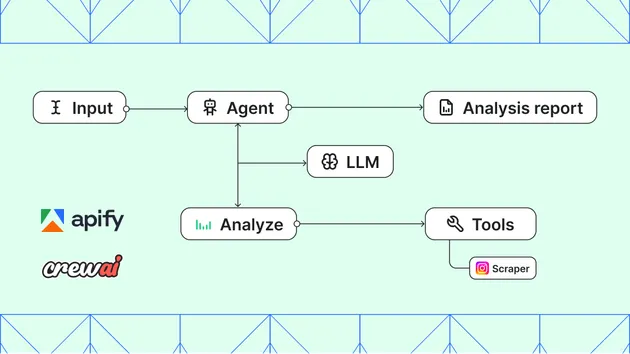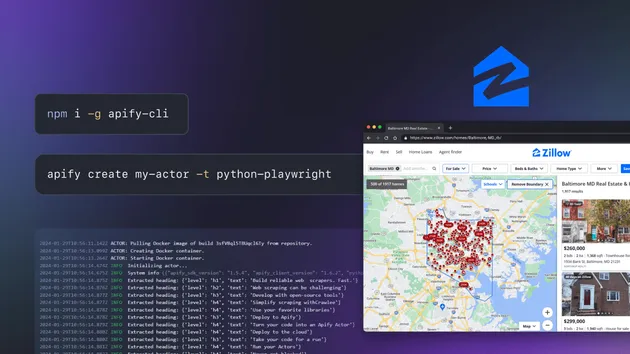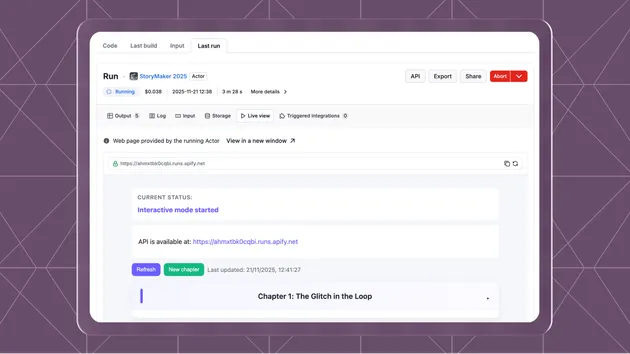Actor Costs
Pricing
Pay per usage
Go to Apify Store

Actor Costs
Get costs and usage stats for your actor use aggregated daily. The actor also provides summary stats for the whole period.
Pricing
Pay per usage
Rating
0.0
(0)
Developer

Lukáš Křivka
Maintained by Community
Actor stats
3
Bookmarked
34
Total users
3
Monthly active users
8 months ago
Last modified
Categories
Share




